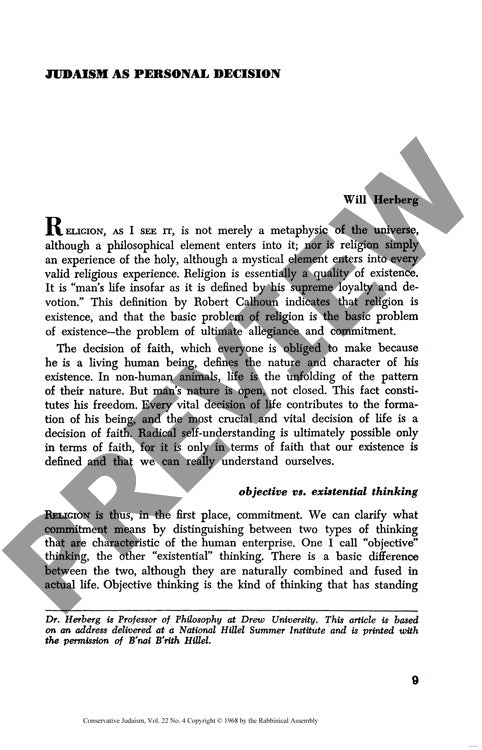Judaism as Personal Decision
Couldn't load pickup availability
Every individual faces an inescapable existential choice between God-centered faith and idolatry - a decision that fundamentally shapes human existence and identity. Drawing on philosophical distinctions between objective and existential thinking, Herberg explores how religion constitutes a core quality of existence defined by ultimate allegiance and devotion. The analysis employs existential methodology, contrasting detached "objective" thinking with engaged "existential" thinking that demands personal stakes and commitment. Through Jaspers' concept of "limit situations" - freedom, moral consciousness, human effort, and death - the inadequacy of purely empirical modes of existence becomes evident, pointing to the necessity of transcendence. The consequences of this fundamental choice prove stark: idolatry leads to delusion, enslavement, and dehumanizing ethics, while God-centered faith promotes realism, liberation, and human dignity. In examining Jewish identity specifically, secular-empirical definitions fall short; Jewish existence can only be fully understood through faith as covenant existence - Israel's role as a "task-force" called to sanctify God's name and witness against worldly idolatries. Both human existence generally and Jewish identity particularly require faith-based commitments that transcend empirical categories, making Judaism fundamentally a matter of personal decision involving dual affirmations of God and covenant community.

More Information
-
Physical Description
-
Publication Information
Published 1968
ISBN
-
Publication Credits
Will Herberg

